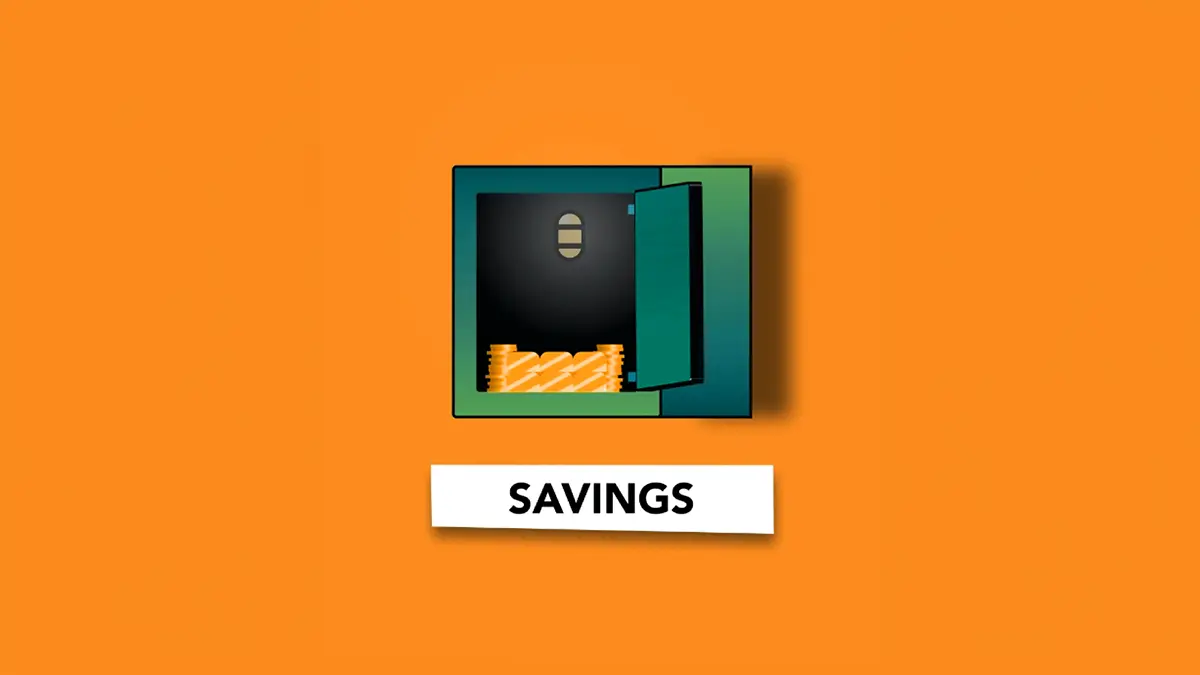If you’re tired of the usual money-saving tips and tricks, this article is for you.
These are 5 unusual ways to save cash. They’re so bizarre they just might work.
Commit to spending your fun money

Our first tip to save money is to spend your money. Huh?
A key reason people fail to save as much money as they should is that they are focused too much on the negative.
They are focused on restricting their spend in order to save, which prevents immediate gratification and creates negative associations in their mind.
It’s difficult to sustain this mentality long-term.
Instead, re-frame your relationship to money by focusing on the amount you can and should still spend each month.
Yes, you need a savings pot to fill each month. But by creating a monthly pot of money that is purely for your enjoyment, that you should aim to spend every cent on things you enjoy each month, it turns the experience on its head.
You are no longer stressing about saving enough, you are confidently spending the money you have set aside to enjoy.
Money stress affects more than half of all adults every single year. The stress can lead to overspending and other poor financial decisions, which restricts your ability to save effectively.
If you budget your savings pot and fun money pot correctly, you can remove the stress of saving money by knowing exactly how much immediate-gratification-spending you have each month.
This can help you to stick to your savings goal.
Think bigger, not smaller
Here’s an unusual tip that found its way onto USNews.com.
Often when we look for ways to save money, we look at the small ways we can cut our expenses.
- Can we skip that extra latte every day?
- Can we cut out one of those streaming services?
- Are you really using that gym membership?
These cliché suggestions do have some value, but they make a small dent when you look at the bigger picture.
Instead, take a look at the big-ticket items you have been spending money on over the last year, and see if you are getting the value and enjoyment out of these relative to the amount of money they cost.
List them out. It is likely going to be:
- Your mortgage/rent.
- Your car payment and related expenses.
- Vacations.
You may be unwilling to compromise on some of these, but if you can make a change to just one, it might be enough to outweigh all your other money-saving initiatives.
For example, your car can be one of the biggest expenses. It is a depreciating asset that comes with a car payment, insurance payment, gas payments, repairs and more.
We often find that the new-car excitement quickly fades, and we are left with a $500 monthly car payment for something that does not provide $6,000 a year worth of happiness.
My unusual tip is to consider keeping your lattes, your Netflix subscription, your gym membership and all your other financial expenditure the same if you desire.
Just make one big adjustment – sell the car, pay off the debt, and get a reliable used car instead. Keep it for a decade and save yourself $60,000.
If you love your car, why not consider moving to a cheaper area? If you love your home, can you consider vacationing somewhere more affordable that you’ve always wanted to go?
Whenever I review the finances of someone struggling to save money, they without fail have an unusually high monthly expenditure for a big-ticket item. Reducing it gives them more disposable income to both spend on things they truly enjoy and save money.
It’s painful to see someone cut their Netflix, pat themselves on the back for saving around $200 a year, but blow that saving in a matter of weeks by making a poor financial decision around their home, their car, or their vacation choice.
Think bigger when you come to save money.
Wait a month, then buy it anyway
For any large purchase, before you pull the trigger you might want to simply wait one month.
If, after a month, you still want the expensive item, you know you really want it.
That’s because often, the novelty of the new purchase fades. The idea and excitement fades in your mind. You realize that expensive thing won’t make that much difference to your life.
I can confidently say ‘buy it anyway’ because actually, you’ll probably decide you don’t really want half the things you simply must have right away. Me telling you to buy it anyway, won’t affect you.
This tip will save you a lot of money, and save you from a lot of buyer’s remorse.
The one-month rule for big spending, rules.
Gamify your finances

Money isn’t a game, they say. Your financial future is serious business, they say.
But gamifying your finances is a great way to build motivation and form habits.
Let’s look at some examples.
Create a reward system
Video games hook into your brain’s reward system to get you addicted and coming back for more.
For achieving often arbitrary goals, the game will reward you with a shiny gold medal and trigger your feel-good hormones.
So why not reward yourself when you reach certain financial milestones. For example, treat yourself to a small indulgence or a fun activity every time you hit a savings or investment target.
We are simple creatures; rewarding our own good behavior really works.
Watch your money pile grow

Tracking your progress in a spreadsheet with a graph sounds dull, I admit. But give it a try.
It might just unlock something in you. Watching your bar chart or line graph of money go up and up and up each and every month can be quite satisfying.
If the thought of using Excel sends you to sleep, search for some financial management tracking apps like Empower.
These apps and online tools are designed to make managing finances more engaging. They can provide insights, track your progress, and even offer challenges to complete.
Compete with family and friends
Talking about money is a taboo subject in many cultures. It does not have to be.
You can gamify your financial goals by competing with friends or family members.
Create a friendly competition to see who can save the most or achieve certain financial milestones first.
This is great if you have a partner or even a close friend you are willing to open up your finances to.
Sharing your goals can help keep you more accountable and therefore, motivated.
It doesn’t even need to be with people you know. There are plenty of financial communities on Reddit and other message boards where you can share your financial highs and lows.
Reject society’s values
In many cultures, there are certain things that you simply must do.
- You must buy a home to get on the property ladder and be in debt for life.
- You must learn to drive and get a car (a depreciating asset).
- You must go to college/university and take on extreme debt.
- You must get married and have an expensive wedding.
- You must go on an expensive honeymoon to a supposed paradise.
- You must raise children that cost $350,000 on average until their 18th birthday.
- You must splurge on your significant other on birthdays and Valentine’s to show them you love them.
This is not to say these are all bad things or that you shouldn’t do them.
But I’m willing to wager there is at least one thing on that list that you have had second thoughts about.
It might not be that you cut them out entirely, but you need not spend all your savings doing them. For example:
- Rent, instead of buy. Give yourself the flexibility to pick up and move whenever you want, and let the landlord deal with the problems.
- Ride a bike instead of driving.
- Pick up a trade or self-teach on YouTube.
- Have a small wedding without the church.
- Go somewhere local or a cheaper country instead of the expensive honeymoon.
- Adopt a teenager that needs a home.
- Agree on a budget for birthday and Valentine’s day presents.
Be an individual, reject societal norms, and save a ton of cash.






